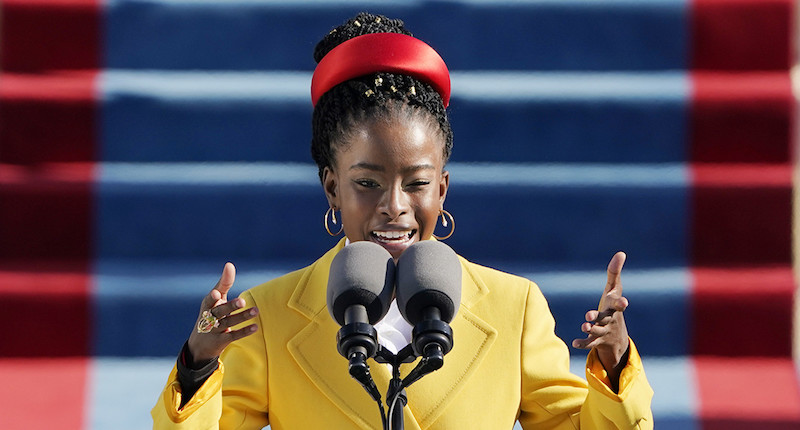Since January 20th of this year, there’s been no shortage of artists and critics voicing their (mostly glowing) opinions about inaugural poet and rising star Amanda Gorman. Finally joining the conversation is enduring satirist Ishmael Reed, best known for his 1972 novel Mumbo Jumbo and his 2019 play The Haunting of Lin-Manuel Miranda, a Toni Morrison-funded takedown of Hamilton. Interviewed by Julian Lucas for The New Yorker, Reed voiced his displeasure with Jill Biden’s choice of inaugural poet:
“I thought [Gorman’s] presentation was well-intentioned,” Reed said. But he also felt that First Lady Jill Biden’s decision to elevate a relative unknown was a form of tokenism, and a slight to artistic communities capable of choosing their own standard-bearers. “They had an opportunity to present a great poet, Joy Harjo, who is, incidentally, the United States Poet Laureate,” Reed said. “But Mrs. Biden knew better.” (“I appreciate him taking a stand,” Harjo—who sees Reed as an important advocate of Native poetry—told me, noting that all of the other performers “had proven themselves in their fields.”)
What bothers Reed most is the “Hamilton”-loving Gorman’s ascent to Black Lives Matter icon by executive fiat. “Can you imagine Fannie Lou Hamer on the cover of Vogue?” he said. Reed sees a similar tokenism at work in the recent revival of James Baldwin’s work, particularly “The Fire Next Time.” “There are more Baldwin impersonators than Elvis Presley impersonators in Las Vegas,” he remarked. “They’re all writing letters to their nephews. I have four or five nephews, Carla. I could write one to all of them and really hit the jackpot.”
Gorman’s love for and constant citation of Hamilton automatically puts the two artists’ projects at odds. But Reed also criticized the publicity surrounding Gorman in the context of a centuries-long pattern of Black artists being tokenized, heavily publicized and quickly discarded. “The problem with tokenism, which I’ve opposed—and I’m a token, so I know how it goes—is that it overshadows all the writers of a generation,” Reed told The New Yorker. “Our writers can’t be permanent. We just have bursts of creativity every ten years or so, and then you get a new crop in.”
